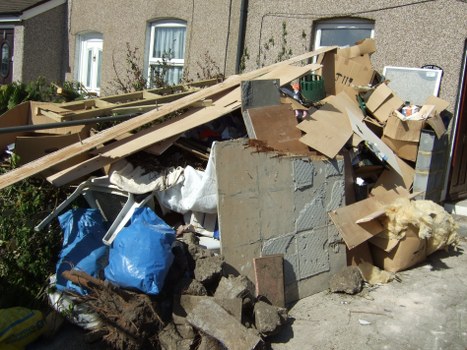Rubbish Collection in Rubbish Sucks: Understanding the Challenges and Solutions
Introduction to Rubbish Collection

Rubbish collection is a fundamental service that keeps our communities clean and healthy. However, when the system falters, it can lead to significant inconvenience and environmental issues. The phrase "Rubbish Collection in Rubbish Sucks" highlights the frustrations many face with inefficient waste management systems.
Efficient rubbish collection is not just about removing waste; it's about doing so in a way that minimizes environmental impact and ensures the well-being of residents. When the process is subpar, it can lead to overflowing bins, unpleasant odors, and even health hazards.
Understanding the underlying problems in rubbish collection can help communities advocate for better services and implement effective solutions.
Common Issues in Rubbish Collection

Inconsistent Pickup Schedules
One of the most common grievances regarding rubbish collection is the inconsistency in pickup schedules. Missed pickups can lead to an accumulation of waste, attracting pests and creating unsightly conditions.
Residents often find themselves juggling alternative disposal methods or waiting longer than expected for the next scheduled pickup. This inconsistency not only causes inconvenience but also undermines trust in waste management services.
Addressing this issue requires better planning and communication between service providers and the community.
Environmental Impacts of Poor Rubbish Collection

Pollution and Health Risks
Poor rubbish collection practices contribute significantly to environmental pollution. Accumulated waste can release harmful chemicals and greenhouse gases, exacerbating climate change and air quality issues.
Improperly managed waste sites can become breeding grounds for bacteria and pests, posing serious health risks to nearby populations. These conditions can lead to the spread of diseases and a decline in overall public health.
Implementing better rubbish collection strategies is crucial in mitigating these environmental and health hazards.
Technological Solutions for Better Rubbish Collection

Smart Waste Management Systems
Advancements in technology offer promising solutions to the challenges of rubbish collection. Smart waste management systems utilize sensors and data analytics to optimize pickup routes and schedules.
These systems can monitor the fill levels of bins in real-time, ensuring that collection occurs only when necessary. This not only improves efficiency but also reduces operational costs and environmental impact.
Adopting such technologies can transform the way communities handle their waste, making the process more sustainable and reliable.
Community Involvement and Awareness

The Role of Education and Participation
Community involvement is vital in enhancing rubbish collection effectiveness. Educating residents about proper waste segregation and disposal practices can significantly reduce the burden on collection systems.
Engaging the community through awareness campaigns fosters a sense of responsibility and encourages proactive participation in maintaining a clean environment.
When residents understand the importance of effective rubbish collection, they are more likely to support and adhere to waste management policies.
Innovative Recycling Initiatives
Promoting Sustainable Practices
Recycling is a cornerstone of sustainable rubbish collection. By promoting recycling initiatives, communities can divert a significant portion of waste from landfills, conserving resources and reducing pollution.
Implementing comprehensive recycling programs that include curbside pickup, recycling centers, and public education can enhance participation rates and the overall success of these initiatives.
Moreover, incentivizing recycling through rewards or recognition can further motivate residents to engage in environmentally friendly practices.
Policy and Regulation in Waste Management
Ensuring Compliance and Standards
Effective rubbish collection relies on robust policies and regulations that set standards for waste management practices. These regulations ensure that service providers adhere to specific protocols, maintaining consistency and quality in their operations.
Enforcing compliance through regular inspections and penalties for non-adherence can deter negligence and promote accountability among waste management entities.
Clear and comprehensive policies are essential in creating a framework that supports efficient and sustainable rubbish collection systems.
Future Trends in Rubbish Collection

Sustainable and Circular Economies
The future of rubbish collection is moving towards sustainability and circular economies. Emphasizing the reuse and recycling of materials ensures that waste becomes a resource rather than a burden.
Innovations such as waste-to-energy technologies and biodegradable materials are paving the way for more eco-friendly waste management solutions.
Adopting these trends can lead to a more resilient and sustainable approach to rubbish collection, benefiting both the environment and the community.
Challenges in Implementing Effective Rubbish Collection

Financial and Logistic Constraints
Implementing effective rubbish collection systems often faces financial and logistical challenges. Limited budgets can restrict the ability to invest in advanced technologies and expand service coverage.
Additionally, logistical issues such as route planning, vehicle maintenance, and workforce management can impede the efficiency of waste collection services.
Addressing these challenges requires strategic planning and investment to ensure that rubbish collection systems are both effective and sustainable.
Impact of Rubbish Collection on Urban Development

Enhancing Livability and Aesthetics
Proper rubbish collection plays a critical role in urban development. Clean cities are more attractive to residents and businesses, contributing to economic growth and improved quality of life.
Effective waste management systems enhance the aesthetic appeal of urban areas, making them more livable and reducing the negative perceptions associated with waste accumulation.
Incorporating efficient rubbish collection into urban planning is essential for creating sustainable and thriving cities.
Conclusion: Moving Towards Better Rubbish Collection

Taking Action for a Cleaner Future
The challenges surrounding rubbish collection are multifaceted, but with concerted effort and innovative solutions, significant improvements can be made. From adopting smart technologies to fostering community involvement, there are numerous strategies to enhance waste management systems.
Communities must advocate for better rubbish collection services and support policies that promote sustainability and efficiency. By doing so, we can mitigate the frustrations encapsulated in the phrase "Rubbish Collection in Rubbish Sucks" and work towards a cleaner, healthier environment for all.
Contact us today to learn more about improving rubbish collection services in your community and take the first step towards a sustainable future.